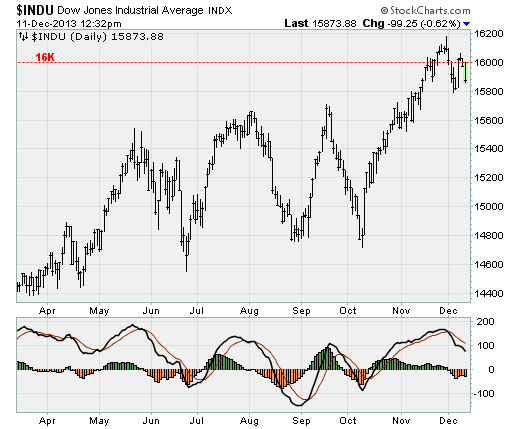Why stocks dislike the government budget deal
As lawmakers trade jabs over the government budget deal announced Tuesday, financial markets offered their own verdict: not so hot. Stocks fell today, with the Dow Jones industrial average leading the decline in afternoon trading.
Why the thumb's down from Wall Street? Yes, the budget deal is modest in scope and is unlikely to have much effect on economic growth. It will trim $23 billion out of the
budget over 10 years, reducing sequester spending cuts by $63 billion in
2014 and 2015 in exchange for $85 billion in new cuts. Those reductions will be funded by cuts to
federal and military pensions and an increase in airline ticket fees.
Still, the pact is meaningful because, by funding the government
through the end of 2015, it removes the risk of another shutdown in
January.
The market has grown increasingly reliant on the central bank's cheap money, with stocks demonstrating a tightening statistical relationship with the amount of cash the Fed is putting out. Fundamentals like the health of the economy and corporate revenue growth seem to matter less and less.
Moreover, on a day-by-day basis, trading sessions that feature large bond market purchases by the Fed are associated with market gains that have contributed the bulk of the rise in shares since QE3 was first announced ins September 2012. Days without Fed purchases tend to see the market drift aimlessly.
While stocks swooned temporarily after the Fed's move to put off tapering, recent data confirmed that the shutdown and debt ceiling standoff was largely a non-event for the economy. Job gains have accelerated, pushing down the unemployment rate to 7 percent.
With a government shutdown seemingly off the table, the Fed is running out of excuses for tapering -- and finally starting the process of getting the liquidity junkies on Wall Street into rehab. The thought of QE3 being drawn down is why stocks have once again fallen away from Dow 16,000.

